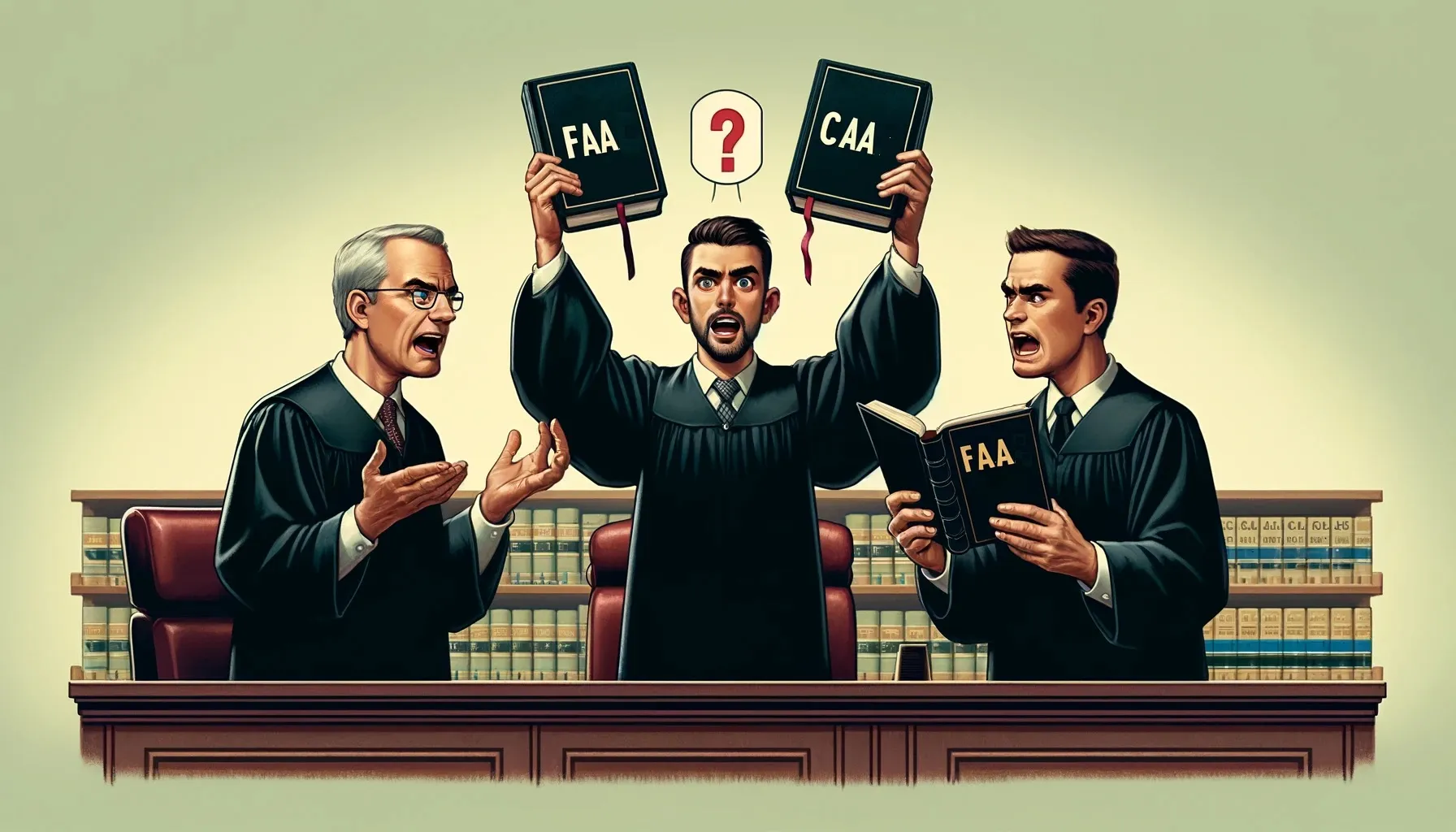
The latest entry to the split in the Court of Appeal over whether the Federal Arbitration Act preempts the California Arbitration Act’s harsh 30-day pay-or-waive deadline under Code of Civil Procedure section 1281.98 is Sanders v. Superior Ct. of Los Angeles Cnty., (D2d7 May 6, 2025, No. B340707), as modified (May 14, 2025). See prior writeups here and here, in which I predicted that, while Hernandez was right to find the FAA’s equal-treatment rule preempts the CAA rule giving arb contracts different treatment in the meaning of “waiver” and “material breach,” the Supreme Court will uphold the CAA rule).
Like many of these cases, in Sanders the trivial delay in paying arb fees was inadvertent and resulted in no delay. The employer paid the initial fees, and months later when the notice for the hearing date went out, the employer simply overlooked the part calling for another fee. When the arbitrator sent out the reminder, the employer took care of it that day by wire transfer. But the employee had already begun working on a motion to return to trial court.
The trial court first granted the motion, but then noting the split of authority, sided with the authorities holding the CAA pay-or-waive rule is preempted by the FAA. (Hernandez v. Sohnen Enterprises, Inc. (2024) 102 Cal.App.5th 222, 321 Cal.Rptr.3d 283, review granted August 21, 2024, S285696.)
Reversing, the Court of Appeal sided with all the other Court of Appeal cases holding the pay-or-waive rule is not preempted. Reaching that conclusion, the court reasoned: (a) the arbitration agreement did not incorporate the procedural rules of the FAA; (b) the pay-or-waive rule is to be decided by the court, not the arbitrator; (c) the pay-or-waive rule supports, and does not contradict, the FAA policy to support arbitration; (d) the pay-or-waive rule defining, by fiat, that a late payment is a “material breach” is not a factual issue but a statutory one.
I am still unsatisfied with the appellate courts’ response to the separation-of-powers problem. “Waiver” is a court function because it is about the parties’ intent: it is part of the case or controversy, and thus cannot be legislatively determined—that is, before a case or controversy even exists. Here, the court addressed this by saying that the parties “implicitly consented” to the pay-or-waive rule. But how did they do this, as their agreement did not mention the CAA at all? And when courts adjudicate a “material breach,” they consider whether they are actually material—that is, whether they worked some actual harm or frustration. But here, a slight delay that was not, in fact, material, is deemed to be a “material breach.”
This is not only usurpation of a judicial function, it is transforming a perfectly good English word, “material breach,” to include its opposite.